On the morning of February 6, the Good Food Fund team and chefs arrived in the University of Massachusetts Amherst. The University of Massachusetts is a well-known public university in the United States. Amherst is the largest campus of the five campuses of the University of Massachusetts and the largest research university in New England.
Vice President Andrew Mangels said that there were more than 30,000 students in the university and that 70 percent of the students applying for Amherst was because the student dining hall was the best in the country. Food is not only delicious and healthy but also contributes to the sustainable development of the environment. Food education in universities is very important. Most freshmen leave their parents for the first time and need to learn to choose their own food. Universities restaurants are crucial to help young people develop good eating habits, which will benefit them for a lifetime. The University of Massachusetts focuses on buying local ingredients to support the local food system and gets students to eat food they didn't eat before, like tofu and vegetables. By controlling food waste, we can reduce costs and make food cheaper.
Next is Eric A Decker, professor and Department Head of Food Science of the University of Massachusetts Amherst.
Decker is one of the most cited scholars in American agriculture/food field. The Department of Food Science of the University of Massachusetts is the oldest in the country (it was established in 1918) and consistently ranks the highest. Three of the 12 professors are among the top 1 percent of most cited scholars in the United States, the highest in the world.
In the PPT shared by professor Eric A Decker, we learned the plant-based diet that is lightly processed is high in potassium and low in sodium and is relatively healthy. The more processed is especially high in sodium because of the use of salt in the fermentation process is a lot, such as soy sauce, miso, pickled vegetables and so on. Asian foods are high in sodium. 4.2 grams per day in Japan, 5.4 grams per day in China, 4 grams per day in Thailand, and 3.4 grams per day in the United States on average.
Professor Eric A Decker introduces some of the strengths, challenges, and conditions of a plant-based diet.
Advantages: low calories (of course related to cooking methods, too ), high nutrient density, relatively low cost, more sustainable, and etc.
The challenge is that if everyone is vegetarian, they may go hungry. The U.S. food system subsidizes soybeans and corn for fodder a lot. The subsidy for plants for people to eat is not enough. If we want to encourage more people to eat a plant-based diet, we must push US food policy to go to that direction, including subsidies.
Another challenge is food safety (not easy to preserve, handling at the farm, etc.), the absence of some nutrients, and food waste.
Professor Eric A Decker also analyzed the pros and cons of Beyond Burger animal protein substitutes and the effects of meat blends.
Professor Eric A Decker concluded that it was important to promote a plant-based diet, which was an important part of healthy and sustainable food from a health and environmental perspective. We need to pay attention to some problems in the process of promoting a plant-based diet, such as nutrition, food safety and so on. We should improve the protein functionality, reduce food safety risks, utilize sodium alternatives and make plant-based diets delicious! ( Americans don't like vegetables. The role of chefs in promoting healthy and sustainable eating is very important!)
Professor Lisa M. Troy shared the research results of the healthy campus research project of the University of Massachusetts, "Dietary Quality and Students’ Success". Lisa M. Troy is a senior scholar in nutrition research and takes part in the standard formulation of dietary guidelines for nutrition in the United States.
They set up a "Nutrition Assessment Laboratory (NAL)" in the campus to survey the proportion of students' dietary habits. 71.2% of the students were omnivores and the rest were vegetarians, including 4.7% eggs and milk vegetarians and 1.9% vegans. They found that the more sweets (artificially added sugars) in the diet, the lower grades; the higher the caffeine, the lower academic performance. The study found a link between high-quality food and high-quality school performance. Students who ate a plant-based diet also had higher grades, especially those chose a variety of plants.
We visited a farm in the afternoon. The farm owner introduced that their products are sold to the University of Massachusetts and some organic supermarket farms. The farm combines planting and processing together. They have organic farming and non-organic farming. The former is 70% higher than the latter.

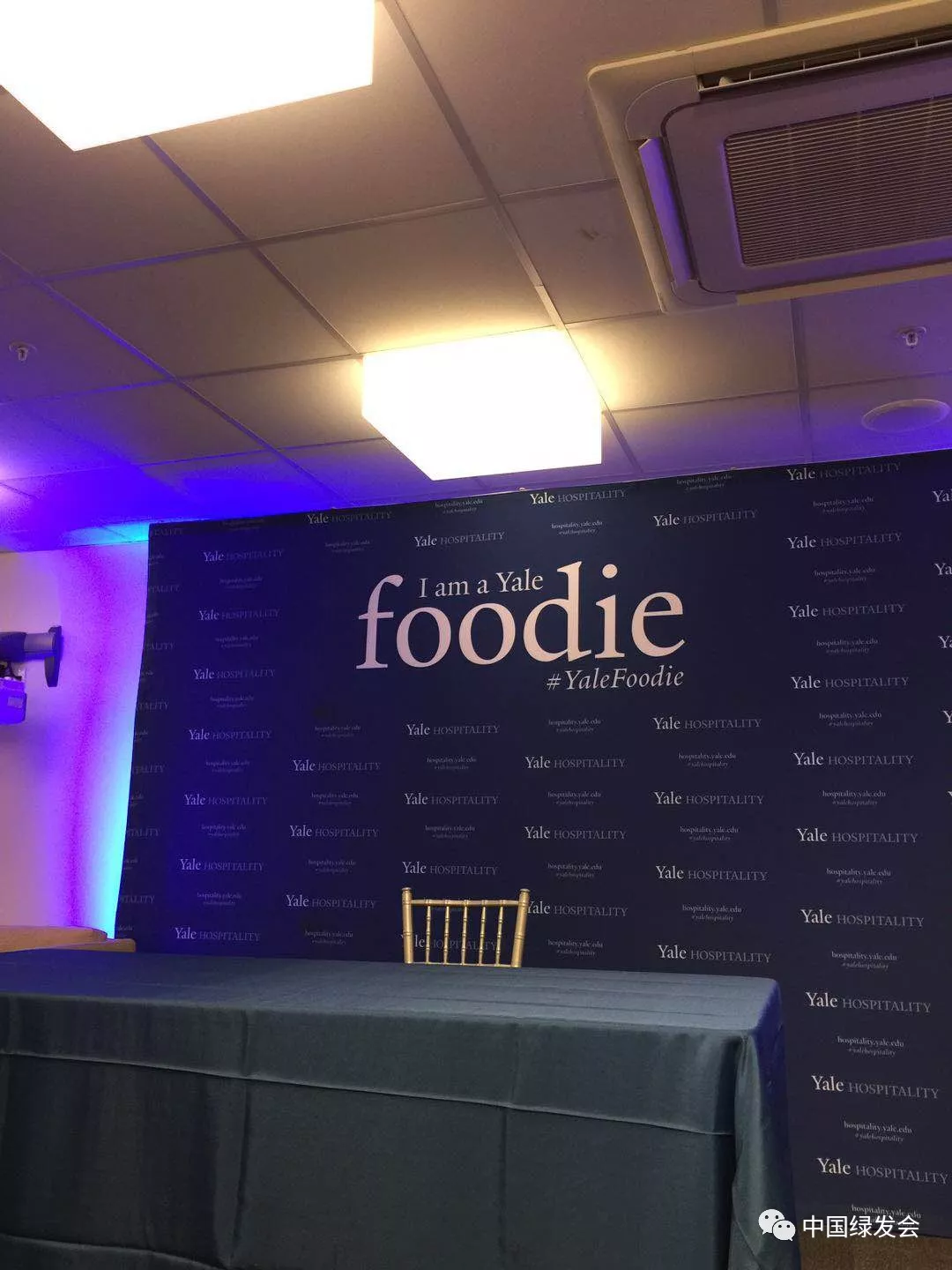
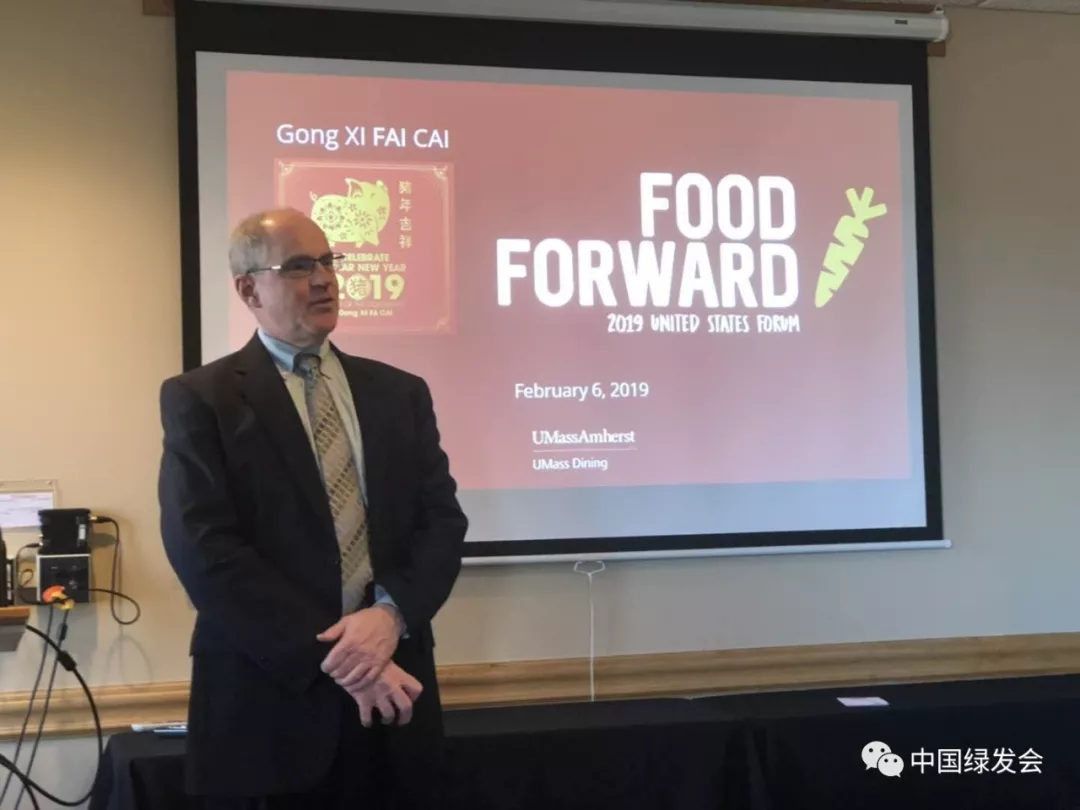



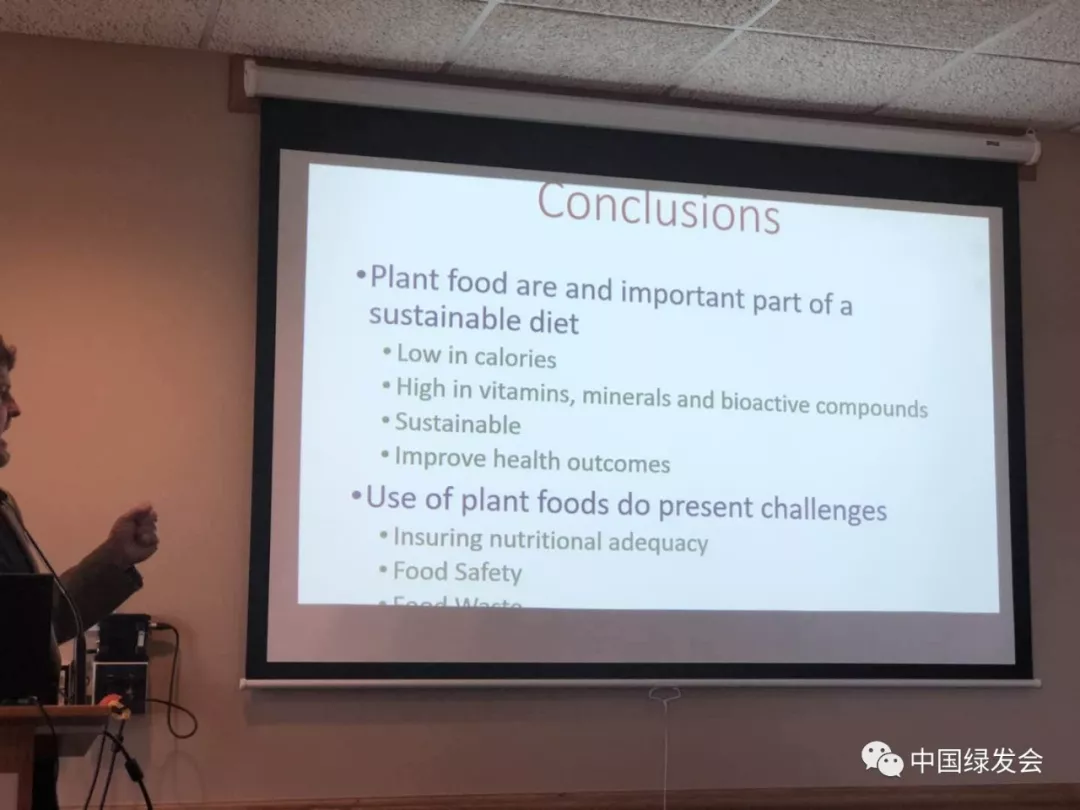
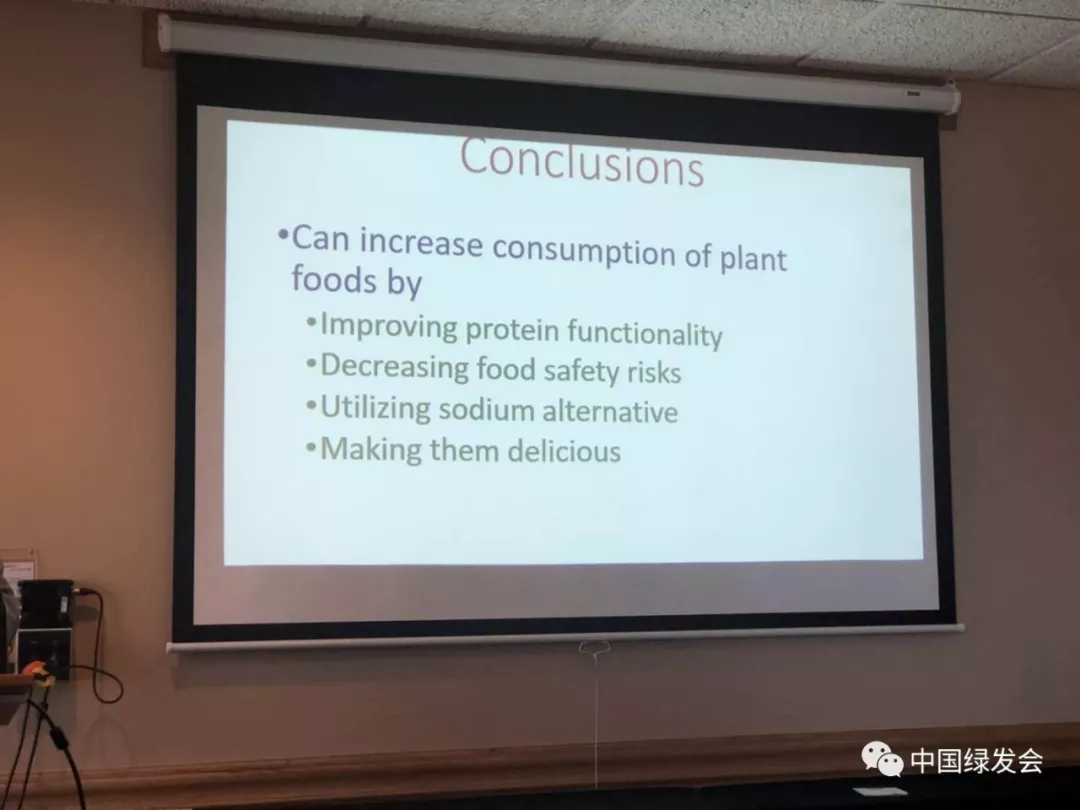
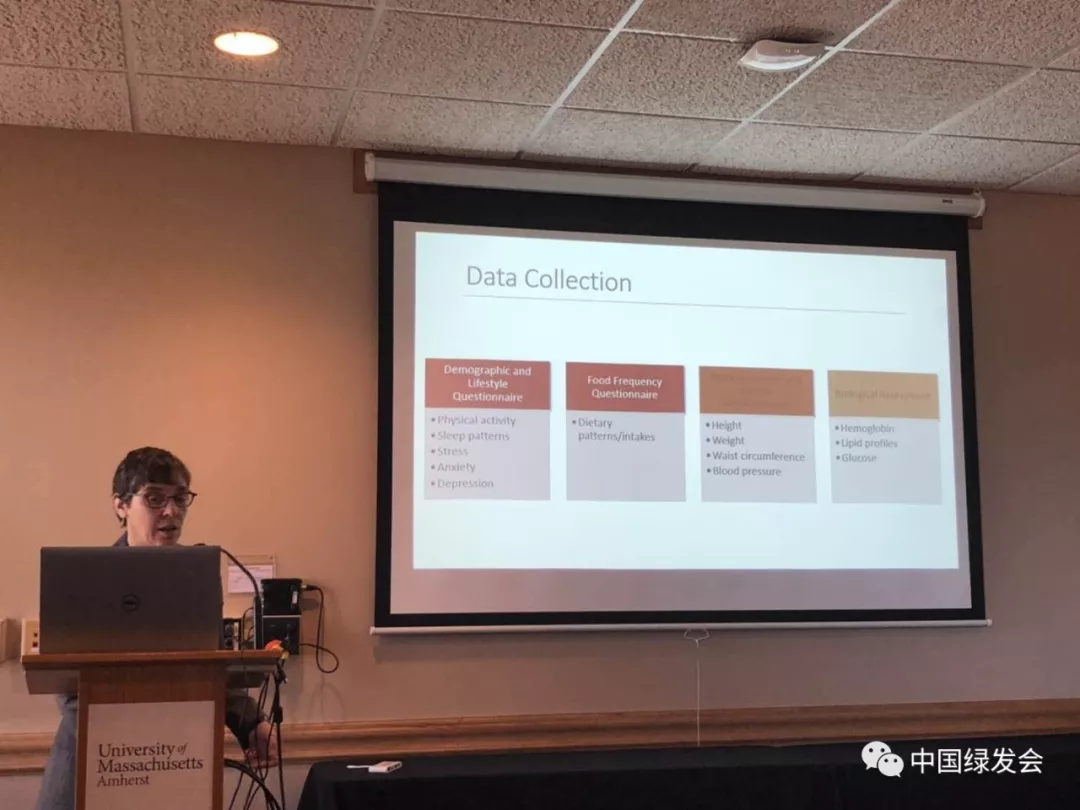
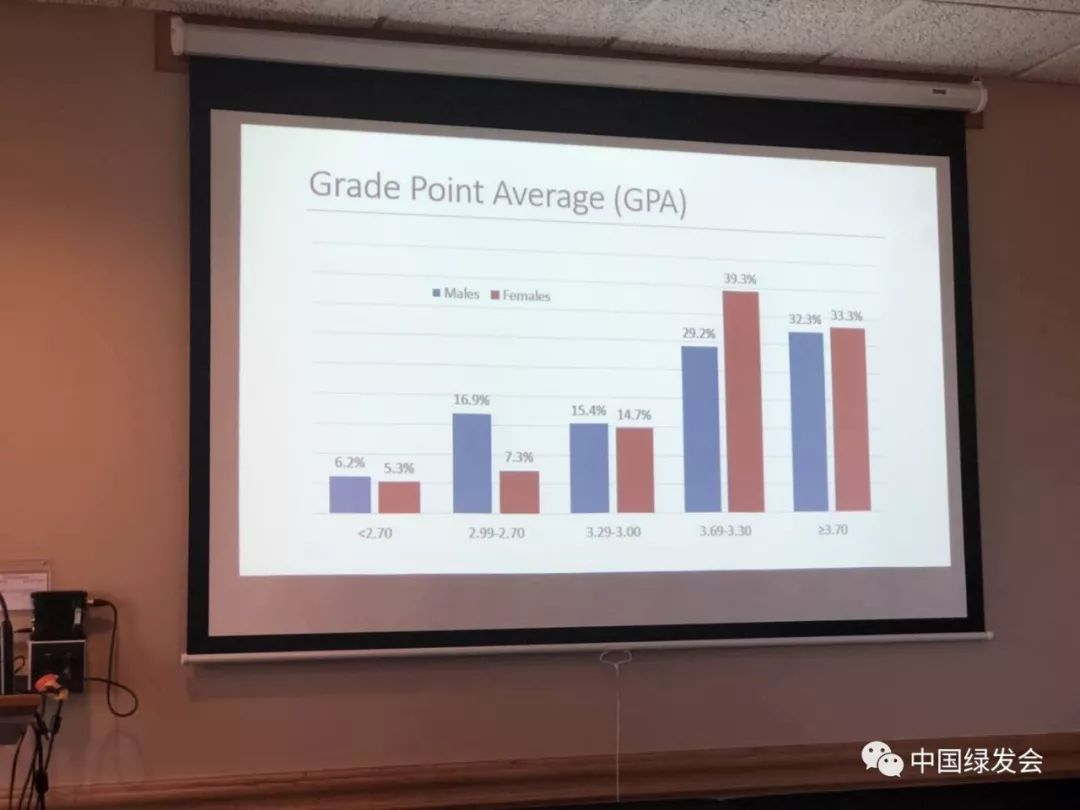
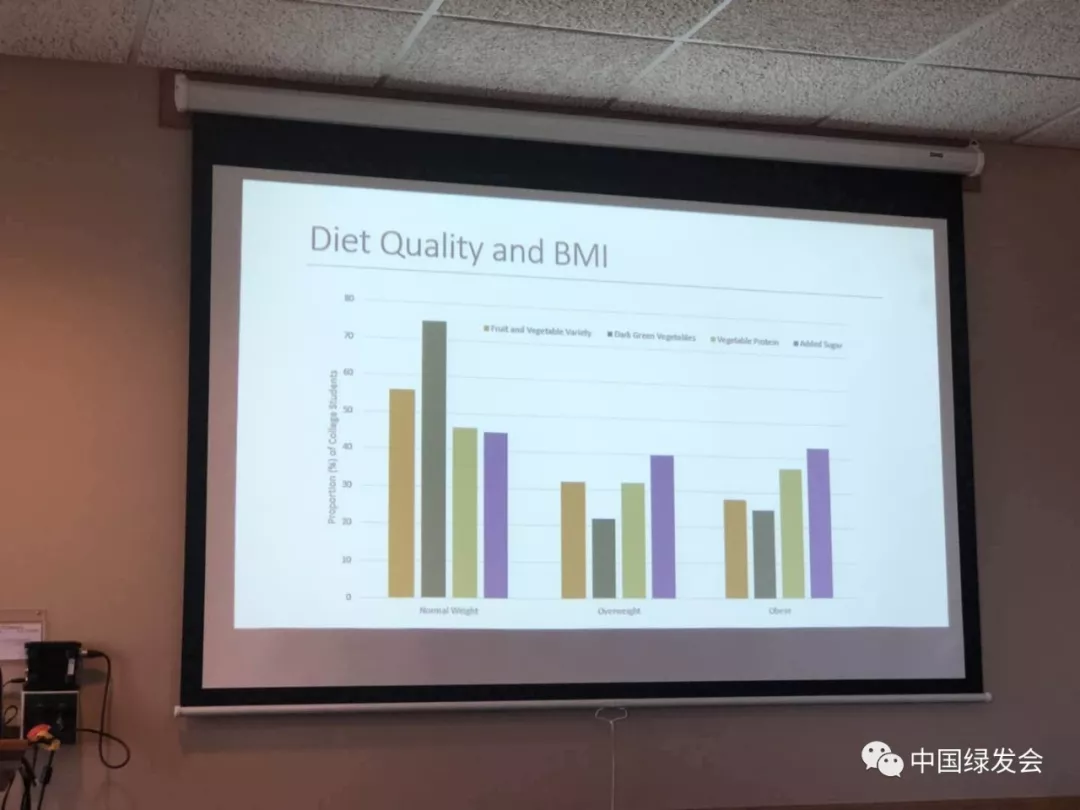

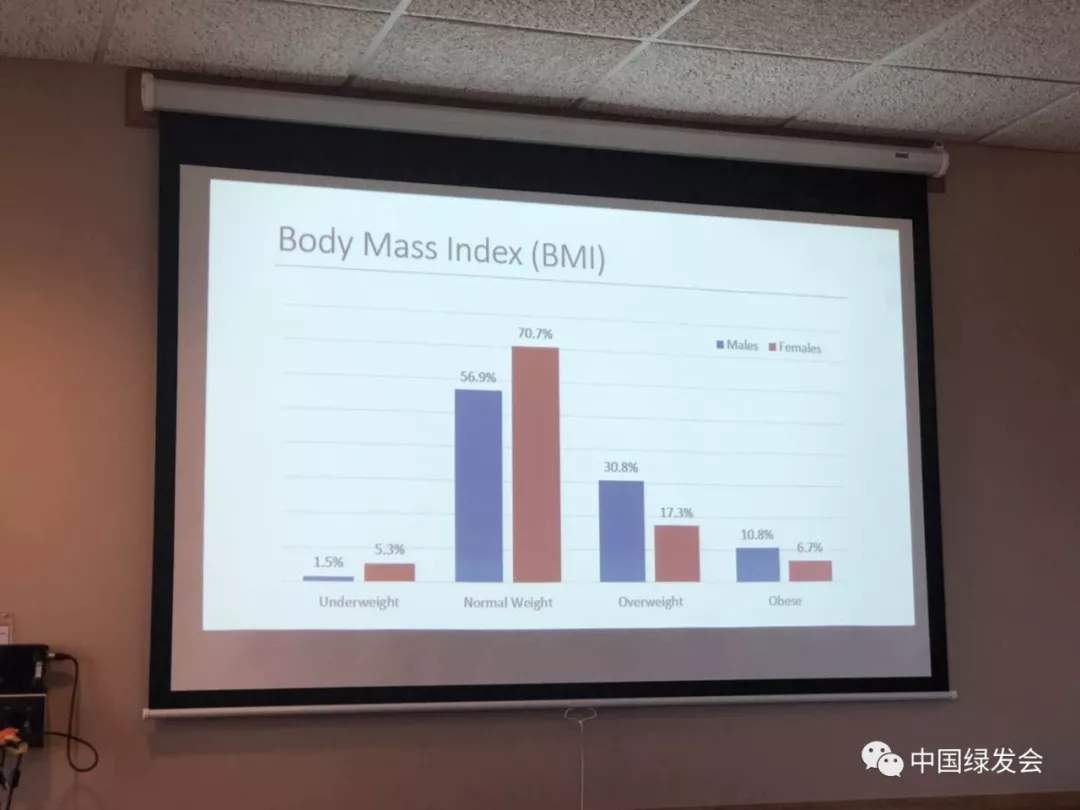
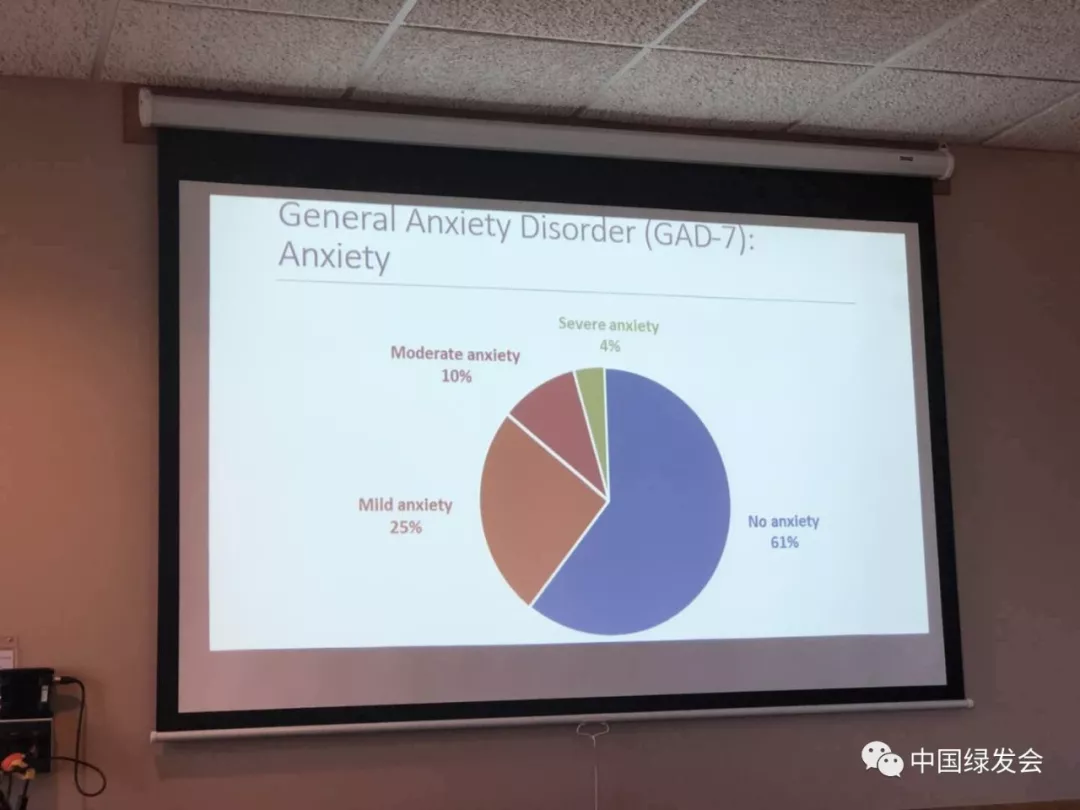
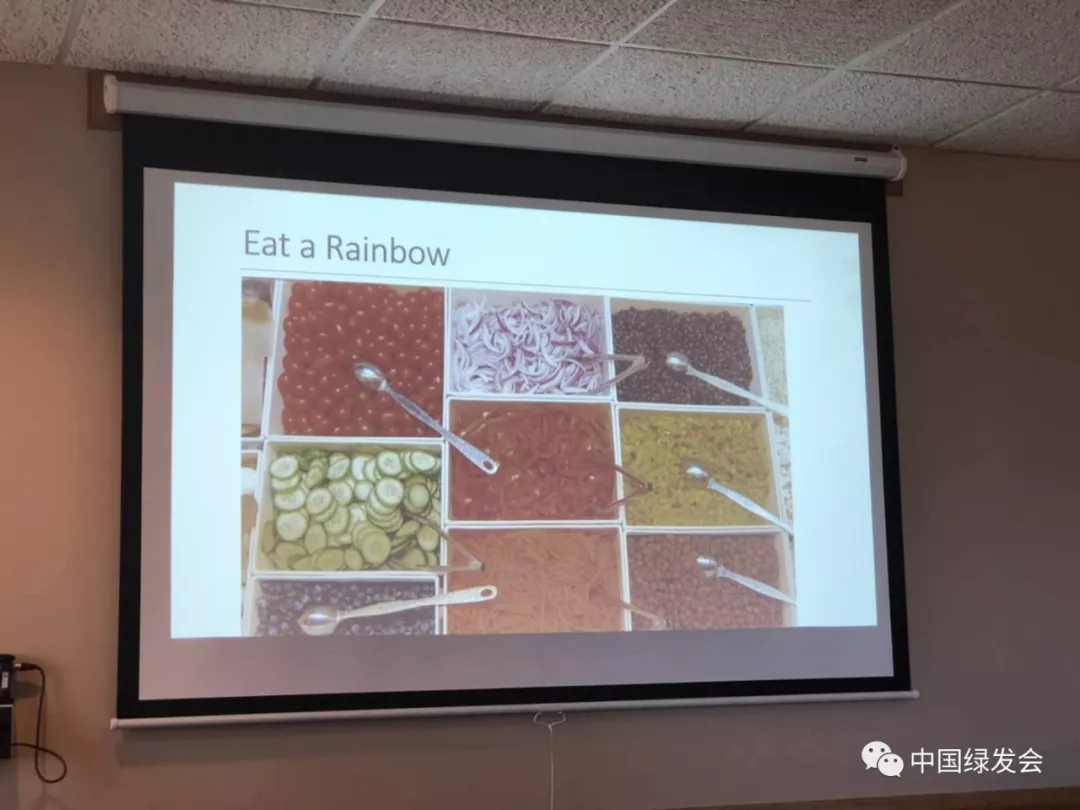
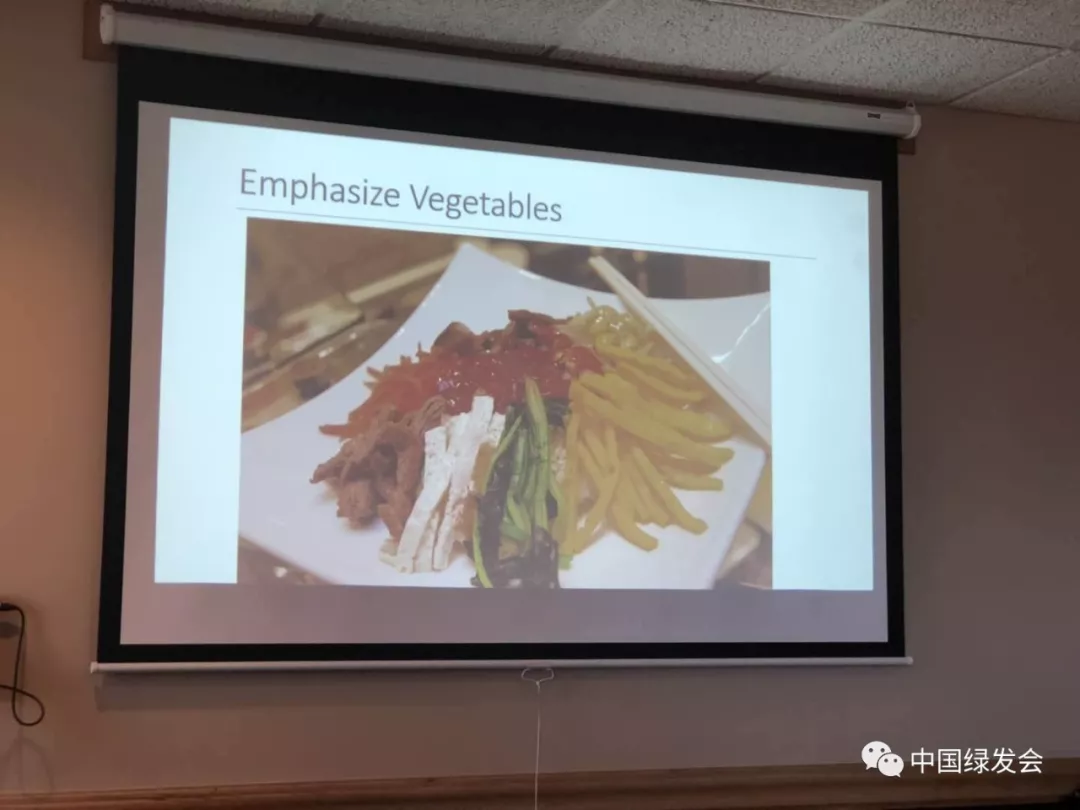
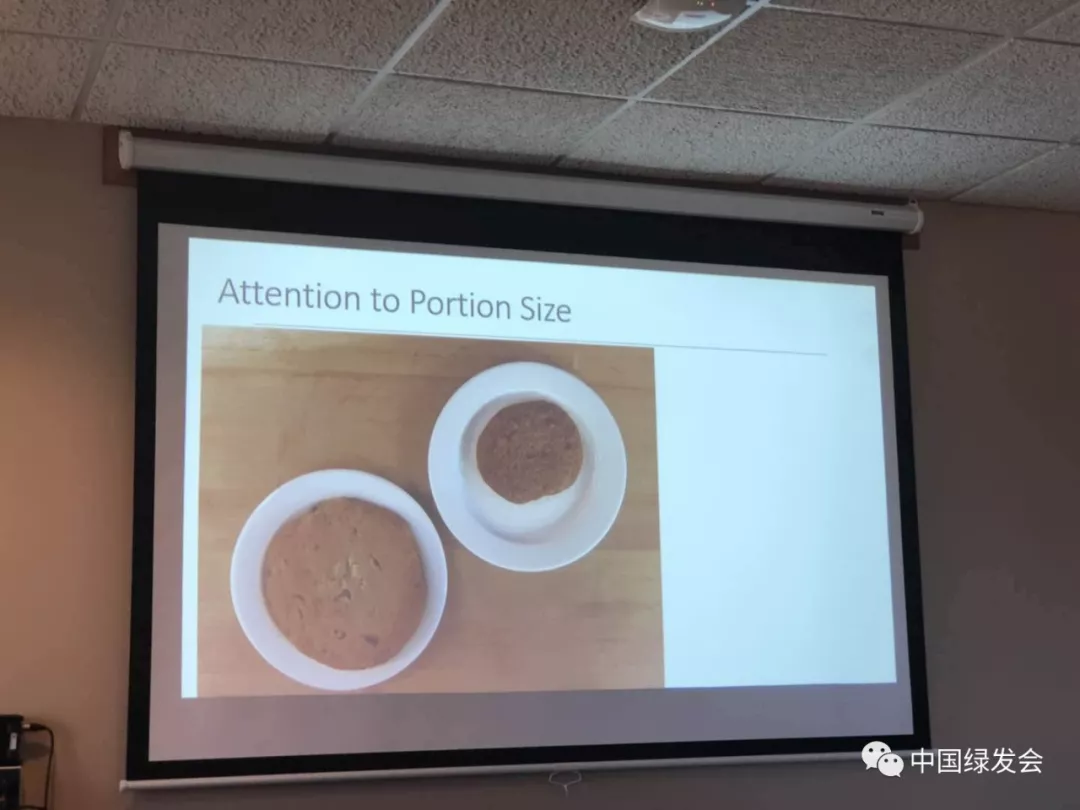
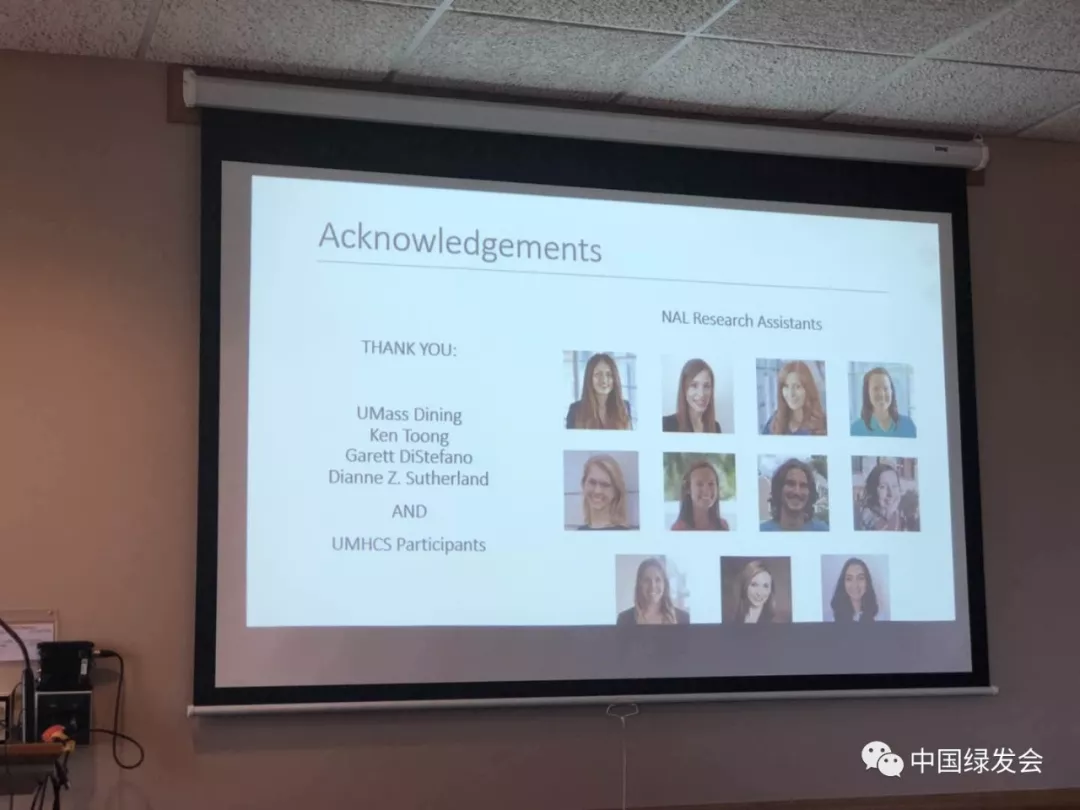


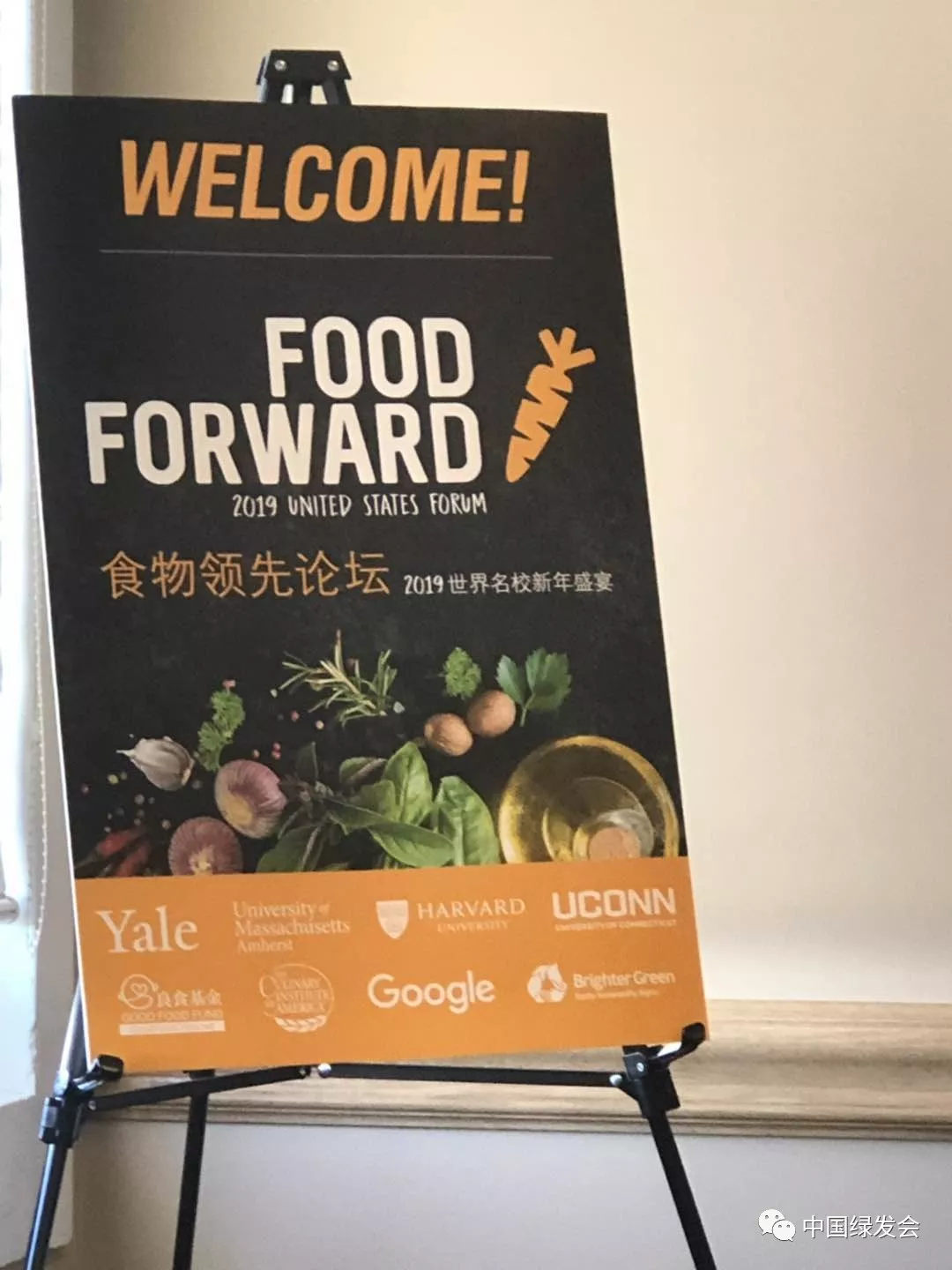




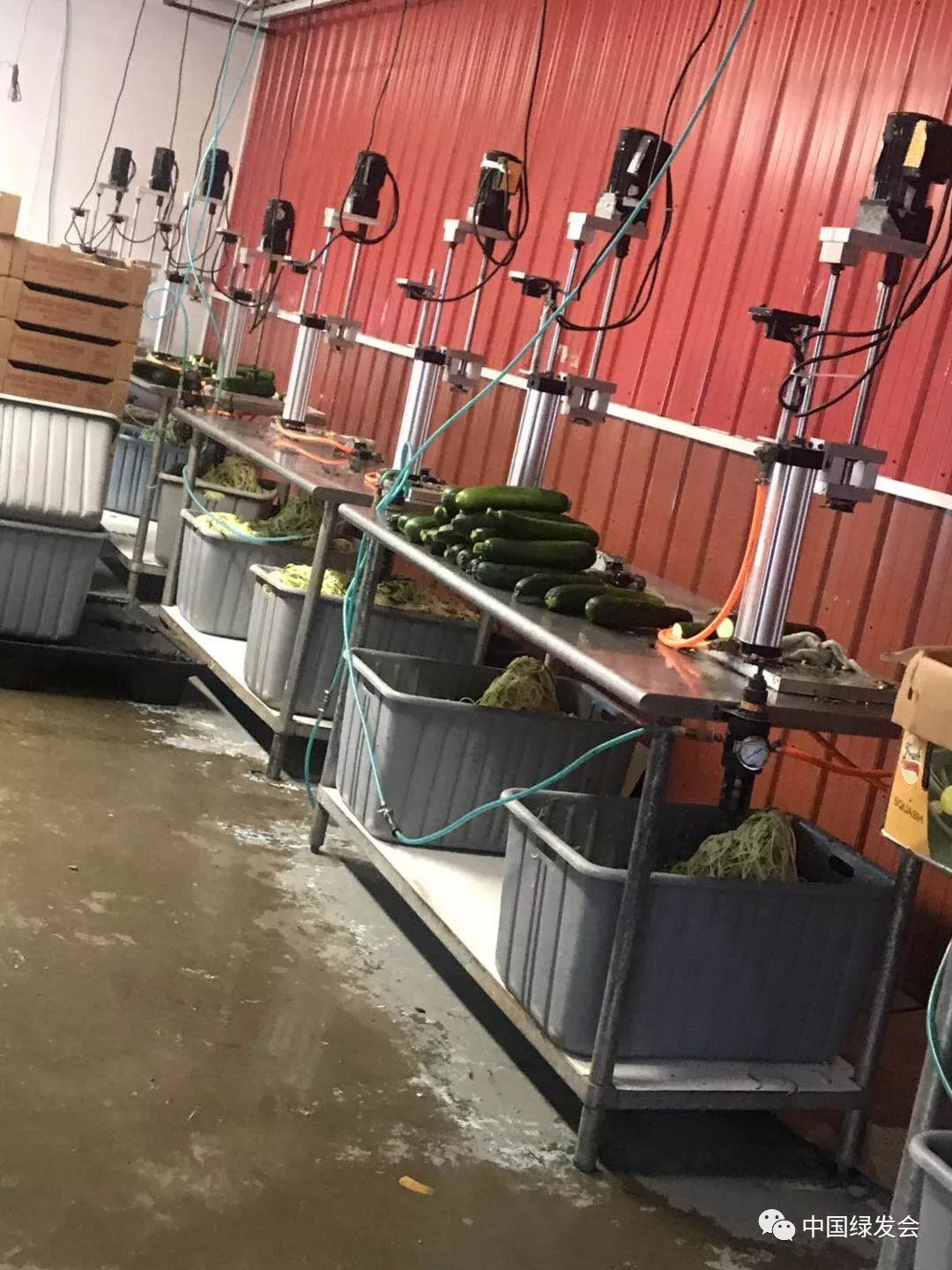
(Photo credit: CBCGDF Good Food Fund)
Original Chinese article:
http://www.cbcgdf.org/NewsShow/5023/7542.html
By / Cynthia
